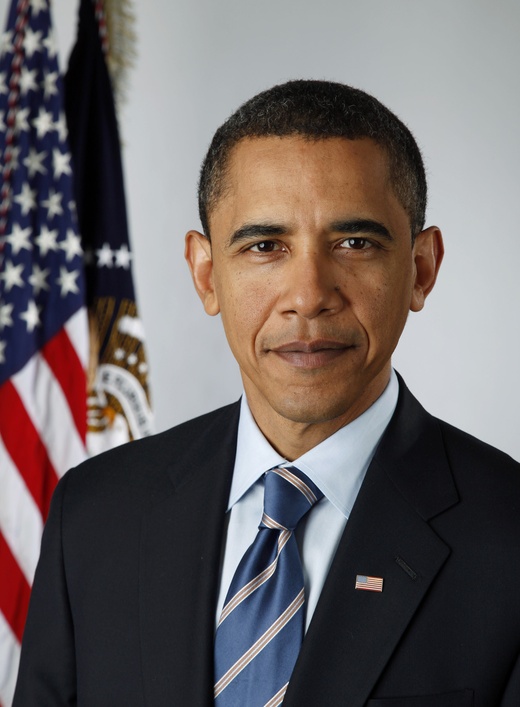 President Obama’s decision to place his required disclosure statement at the top of recent campaign ads markedly shifts the tone of presidential campaigning, though in a way not obvious at first. By spotlighting what we’re about to see, instead of acknowledging what we’ve just seen, he gives us permission to perceive his words in an entirely new way. A simple rhetorical shift admits a truth that has lingered beneath politics for years.
President Obama’s decision to place his required disclosure statement at the top of recent campaign ads markedly shifts the tone of presidential campaigning, though in a way not obvious at first. By spotlighting what we’re about to see, instead of acknowledging what we’ve just seen, he gives us permission to perceive his words in an entirely new way. A simple rhetorical shift admits a truth that has lingered beneath politics for years.Since the McCain-Feingold Act of 2002 made mandatory the “I’m <Candidate’s Name> and I approve this message” disclaimer, we’ve mainly heard these words at the end of an ad. Especially in ads meant to stir up strong negative feelings, that conclusion has distinct psychological impact. Notice this notorious 2004 ad, in which President Bush’s very name serves to relieve the fear of imminent pain and death:
This makes a seamless blend of theatre, politics, and storytelling. Notwithstanding how you perceive this historic ad, or its effect on the 2004 election, it makes good art. The cinematic production values make Ronald Reagan’s “Morning In America” ads look clunky by comparison. And the disclaimer at the end announces in essence: you have just watched theatre. I, George W. Bush, am real. In life, as in theatre, I am the solution to fear.
President Obama reverses this. He announces at the outset that we will now see theatre, and we go in expecting to see art. People who follow politics already know this, and the discourse is dominated by drama. Conservatives want to refight the “hippies vs. squares” culture war of 1968. Liberals play off the accomplishments of the labor movement after World War II. Neither wants to run on the powerful but incomprehensible issues which dominate current governance.
Traditional advertising tries to present itself as reality. Ad buyers want us to believe we could really make this car go zero to 60 in seven seconds, or get our shirts this shiny with this detergent. And political ads try to achieve this same goal: a vote for me will spearhead the reality I advocate, and a vote for my opponent will lead to dystopia. But they cannot achieve this goal if they acknowledge their campaigns are engaged in art, not governance.
 So they move their disclaimers to the end. Even if it only lasts twenty-five seconds, we have to believe campaign ads as completely as we believe ads for Viagra or liquor. We withhold the admission that, oops, this is art. Not so President Obama. He admits—not implicitly, but explicitly—that a gap exists between campaign promises and the realities of governance. These, he says, are my words. Judge them only as that.
So they move their disclaimers to the end. Even if it only lasts twenty-five seconds, we have to believe campaign ads as completely as we believe ads for Viagra or liquor. We withhold the admission that, oops, this is art. Not so President Obama. He admits—not implicitly, but explicitly—that a gap exists between campaign promises and the realities of governance. These, he says, are my words. Judge them only as that.Commentators like Matt Taibbi have declared unambiguously that most of us cannot understand the real questions candidates have to deal with today. Events like the 2007 economic meltdown or global warming are so massively complex that, without extensive study, ordinary voters cannot encompass their labyrinthine nuances. Yet candidates rely on ordinary voters if they want to get their feet in the door.
By ballyhooing the theatrical nature of his ads, President Obama admits we cannot really understand the issues in play. We can listen to what candidates say, but we must also look at their respective actions. Thus Obama invites us to look at his record on the national stage, which he apparently believes Americans will find, on balance, positive. Thus he could not have made this choice in 2008, when many Americans still didn’t know him.
Calling attention to theatre’s theatrical nature could go either way. Shakespeare’s “rude mechanicals” in A Midsummer Night’s Dream stage a play for the king’s coronation, but feel the need to remind the audience that they’re watching a play. Shakespeare plainly considers these amateur actors to be rubes worthy of our disdain.
 But Thornton Wilder’s Our Town centers on the narration of the Stage Manager, who repeatedly calls attention to the theatrical conventions around him. He encourages us to consider the play with cool intellectual distance. Despite being adulterated by uncounted sentimental high school productions, this distancing effect has made Our Town a legitimate classic.
But Thornton Wilder’s Our Town centers on the narration of the Stage Manager, who repeatedly calls attention to the theatrical conventions around him. He encourages us to consider the play with cool intellectual distance. Despite being adulterated by uncounted sentimental high school productions, this distancing effect has made Our Town a legitimate classic.President Obama thus is taking a chance. He trusts us voters to perceive his campaign as Our Town, not Quince and Bottom. Anybody who has sat through a Bertolt Brecht snoozer knows self-conscious theatre can drain the audience. But current authors like Susan-Lori Parks draw attention to their art, and audiences love her. We, the President’s audience, will give our binding theatrical review this November.
No comments:
Post a Comment